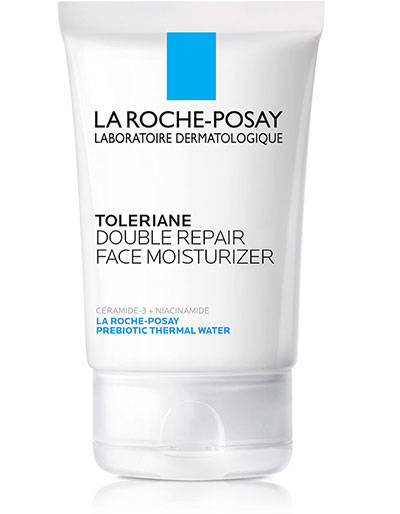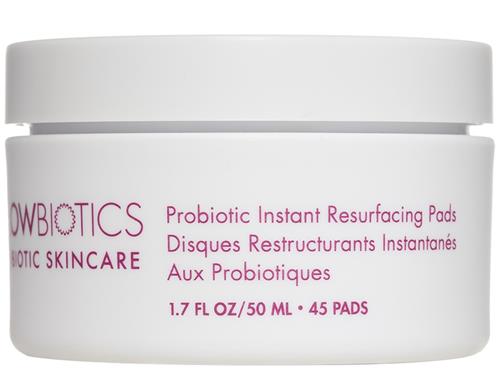As we learn more and more about how gut health impacts our digestion and beyond, the number of products formulated with prebiotics and probiotics continues to explode. And we’re not only talking food and supplements. A growing number of beauty brands are formulating their skin care products with probiotics (a.k.a. the “good” bacteria that boosts gut and skin health) and prebiotics, which feed that good bacteria to keep it healthy and thriving. Given the proven skin care benefits of both prebiotics and probiotics when ingest, it makes sense that they’ve made their way into topical products.
“The benefits of prebiotic and probiotic skincare products can range from helping with acne to improving hydration in dry skin to dialing down redness and inflammation to smoothing out wrinkles — it really all comes down to the strain being used,” says dermatologist Dr. Whitney Bowe. “For example, some strains have been shown to boost collagen production, while others stimulate ceramide production and others have antibacterial properties.”
How to Choose Probiotic Skin Care
The average person doesn’t have a concept of how much sugar is in their diet, let alone the difference between L. Acidophilus, L. Rhamnosus, L. Plantarum and the countless other probiotic strains. Dr. Bowe also adds that what might work in a lab setting might not translate into real life unless the technology is stable on the shelf and able to penetrate the skin (remember, bacteria is living!), and the claims surrounding prebiotic and probiotic cosmetics are deliberately vague. But that doesn’t mean this skin care trend isn’t worth exploring; it just means you have to shop astutely.

Dermatologic surgeon and RealSelf contributor Dr. Joel Schlessinger points out that there’s enough science behind some of these products to make them worth adding to a skin care routine. “Prebiotics and probiotics use microorganisms to restore balance in your skin, which helps to reduce breakouts and inflammation and can even assist in treating conditions such as acne, eczema or rosacea. They can also help strengthen the skin’s natural barrier function, providing extra protection against environmental aggressors and sun damage.” He’s quick to add, however, that he would not recommend using them as a stand-alone treatment, particularly to treat or prevent sun damage.
Among the products he recommends are GLOWBIOTICS Probiotic Instant Resurfacing Pads and Imbibe Beauty Renewal Bio-Fermented Probiotic Elixir. “The pads use probiotics along with aloe vera and lactic acid to mimic the results of a chemical peel without the downtime. With regular use, these ingredients work to resurface the skin, reducing the appearance of large pores, fine lines and wrinkles. The elixir is primarily used to support a healthy gut, but it is also formulated with antioxidants to help protect skin from the inside out. It feeds the skin’s microbiome to defend from drying free radical damage, offering extra hydration.” Dermatologist and RealSelf contributor Dr. Michele Green also recommends La Roche-Posay, which has a number of prebiotic-formulated products.

Matilda Hoffman, a spa therapist at The Confidante Miami Beach has seen firsthand how these bacteria-infused products can benefit clients’ skin. She uses them alongside ingredients like pomegranate extract, coconut oil, coffee extract, raspberry, acai berry or white tea to boost the efficacy of the prebiotics and probiotics. While it’s important to look for the good stuff in an ingredient list, it’s also very important to look for the bad. “If you’re taking the time to introduce healthy strains onto the skin or add ingredients that promote a healthy balance of bacteria on the skin, don’t sabotage that effort by using ingredients that are detrimental to the microbiome,” says Bowe. She singles out triclosan, alcohol and sulfates as having no place in probiotic products.
While prebiotic- and probiotic-rich skin care products are generally safe for everyone, Bowe recommends that those who are immunocompromised or on high doses of steroids or immunosuppressant medications hold off on products that contain live bacterial strains.




